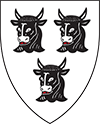Fellows
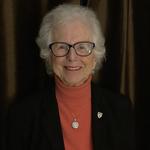 |
Margaret LeeFormer Dean's Assistant |
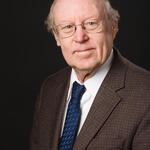 |
Thomas LentzEmeritus, Cell BiologyThomas L. Lentz is currently Professor Emeritus of Cell Biology at the Yale University School of Medicine. He went on the faculty of the medical school in 1964 and his laboratory performed research mainly on nerve cells in the fields of cell biology and neurobiology. In 1971, he published “Cell Fine Structure. An Atlas of Drawings of Whole-Cell Structure.” He was Dean of Admissions for the medical school from 1972 to 2006 and Vice Chairman of the Department of Cell Biology from 1992 to 2006. He retired in 2006 but continued to teach medical histology to first year medical students until 2018. He is currently a Curatorial Affiliate at the Peabody Museum of Natural History and donated a large collection of antique microscopes, microscope slides, and scientific instruments to the museum. He lives in the town of Killingworth, CT and currently is Municipal Historian and Chairman of the Planning and Zoning Commission. |
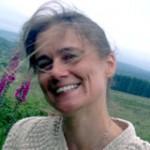 |
Pauline LeVenClassicsPauline LeVen was born in Monaco and raised in France, and studied at the Ecole Normale Supérieure (Paris), the Sorbonne and Princeton University, and earned a joint PhD from both in 2008. She was a Fulbright student in 2001–02 and the Phi Beta Kappa Sibley Fellow in Greek Studies in 2007–08. |
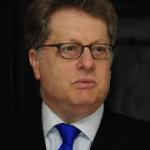 |
Gilbert LevineMusic DirectorHailed as “an outstanding figure in the world of international music television,” Sir Gilbert has led the U.S. television debuts of such world renowned European orchestras as the Staatskapelle Dresden, Royal Philharmonic, London Philharmonic and the Philharmonia Orchestra. Educated at Juilliard, Princeton and Yale, he served as assistant to Sir Georg Solti and Klaus Tennstedt. Maestro Levine first made international headlines when he was named Artistic Director and Principal Conductor of the Kraków Philharmonic in 1987, becoming the first American to head a major orchestra behind the Iron Curtain. He conducted that orchestra on tours to Europe, the Far East and the major concert halls of North America, including the Kennedy Center in 1993. From 1988-2005, Levine created and conducted concerts for His Holiness Pope John Paul II, at the Vatican and around the world, including the historic Papal Concert to Commemorate the Holocaust (1994) and the Papal Concert of Reconciliation (2004). Their 17-year close artistic collaboration is detailed in Sir Gilbert’s memoir, “The Pope’s Maestro,” published by Wiley in the U.S. and the UK in 2010, and in the Pope’s home country of Poland in 2012. For his artistic contributions to better understanding among people of all faiths, Gilbert Levine was invested by Pope John Paul II as a Knight-Commander of the Equestrian Order of Saint Gregory the Great, the highest Papal Knighthood accorded a non-ecclesiastical musician since Mozart. Pope Benedict XVI further recognized Levine’s work when he bestowed upon him the Silver Star of Saint Gregory, the highest Pontifical honor accorded a Jew in Vatican history. |
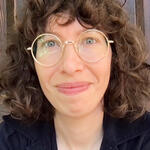 |
Naomi LevineEnglishPh.D., Rutgers University, 2015 I work on Victorian poetry and poetics, prosody, aesthetics, and the history of criticism. My research investigates the relationships among formal, historical, affective, and evaluative conceptions of poetry in the nineteenth century and after. My first book, The Burden of Rhyme: Victorian Poetry, Formalism, and the Feeling of Literary History (forthcoming from University of Chicago Press in Fall 2024) examines nineteenth-century ideas about the origin of rhyme and their significance for the theory and practice of Victorian poetry and for the development of literary studies. I’m also at work on a second project, “The Badness of Victorian Poetry,” about twentieth-century evaluative criticism and its reception of nineteenth-century poems. In theorizing and historicizing the aesthetic category of “badness”, this project considers the entanglements of judgment and interpretation in the study of poetry more broadly. My essays have appeared in Victorian Studies, Victorian Poetry, Victoriographies, Victorian Literature and Culture, MLQ, and Literature Compass. Before coming to Yale, I was a Junior Fellow at the Harvard Society of Fellows. At Yale, I have taught introductory poetry classes, a course on elegy (The Art of Losing), a junior seminar on Love and Desire in the Nineteenth Century, a senior seminar on the nineteenth-century figures of the Poetess and the Woman of Letters, and a graduate seminar called The Badness of Victorian Poetry. |
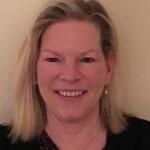 |
Ellen LewisOffice of DevelopmentEmail Ellen Lewis |
 |
Alan LiuYale Investments OfficeA proud Trumbull alumnus, Alan Liu graduated from Yale College in 2021 with a Bachelor of Arts in Economics and Mathematics. He now works for the Yale Investments Office. In his free time, Alan enjoys reading, running, and exploring new places around Connecticut.Email Alan Liu |
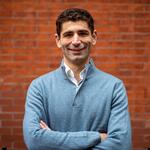 |
Nathaniel LoewentheilUndergraduate EducationNate Loewentheil is an investor, social entrepreneur, and nationally recognized public policy expert. Nate is the founder and managing partner of Commonweal Ventures, a VC firm investing in leading companies in the sectors of sustainability, transportation and infrastructure, and the urban environment. Nate is also an adjunct Professor at Yale University, where he teaches a course on Technology and the American City. Previously, Nate served in the Obama White House as a Special Assistant to the President at the National Economic Council, where he advised President Obama on urban policy, transportation, and emerging technologies. Nate is the founder of numerous successful social enterprises, including Baltimore Homecoming, the Millennial Action Project and the Roosevelt Network. He is a former Forbes 30 under 30 and Aspen Ideas Fellow. He has written for The New York Times, The Washington Post, Politico, and Fast Company, among many other outlets, and is the editor of a book, Thinking Big. Nate holds both a BA and JD from Yale. He lives with his wife in New York City. Email Nathaniel Loewentheil |
Anne-Marie LoganReference Librarian |
|
Darcy LowellPediatrics, Child Study Center |
|
James LuAYA, Board of Governors |
|
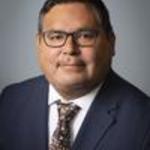 |
Matthew MakomenawNative American Cultural CenterMatthew Makomenaw, is the Assistant Dean of Yale College and Director of the Native American Cultural Center. Matthew earned three degrees from Michigan State University: his Bachelor of Arts, in Psychology; his Master of Arts, in Higher, Adult, and Lifelong Education-Student Affairs; and his Ph.D., in Higher, Adult, and Lifelong Education. His dissertation focused on tribal college transfer student success at four-year Institutions. Over the course of his career, he has created and supported programs to help Native and Indigenous students make the transition to and thrive in college - including summer bridge programs, college access initiatives, pow wows, tribal outreach and student retention and success. Email Matthew Makomenaw |
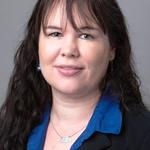 |
Angie MakomenawYale College Student Support CounselorAngie Makomenaw has spent over 19 years in advocacy related fields starting her career as a victim witness specialist with the 18th Judicial District Attorney’s Office of Colorado handling felony level cases. From there she worked for her tribe, Saginaw Chippewa, establishing and creating a comprehensive domestic violence program. Afterward her path lead her to the University of Utah and University of Northern Colorado to establish and support advocacy and prevention education programs. In her free time, Angie enjoys watching high levels of television with her family and enjoying views of the beautiful outdoors from the indoors. |
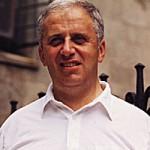 |
Gregory MargulisEmeritus MathMargulis was born to a Russian family of Lithuanian Jewish descent in Moscow, Soviet Union. At age 16 in 1962 he won the silver medal at the International Mathematical Olympiad. He received his PhD in 1970 from the Moscow State University, starting research in ergodic theory under the supervision of Yakov Sinai. Early work with David Kazhdan produced the Kazhdan–Margulis theorem, a basic result on discrete groups. His superrigidity theorem from 1975 clarified an area of classical conjectures about the characterisation of arithmetic groups amongst lattices in Lie groups. He was awarded the Fields Medal in 1978, but was not permitted to travel to Helsinki to accept it in person, allegedly due to antisemitism against Jewish mathematicians in the Soviet Union.[4] His position improved, and in 1979 he visited Bonn, and was later able to travel freely, though he still worked in the Institute of Problems of Information Transmission, a research institute rather than a university. In 1991, Margulis accepted a professorial position at Yale University. Margulis was elected a member of the U.S. National Academy of Sciences in 2001.[5] In 2012 he became a fellow of the American Mathematical Society.[6] In 2005, Margulis received the Wolf Prize for his contributions to theory of lattices and applications to ergodic theory, representation theory, number theory, combinatorics, and measure theory. In 2020, Margulis received the Abel Prize jointly with Hillel Furstenberg ”For pioneering the use of methods from probability and dynamics in group theory, number theory and combinatorics.”[7] |
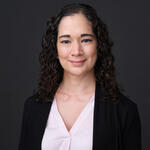 |
Vanessa MartinezVannesa joined the University’s Office of the General Counsel in 2012. Prior to her appointment at Yale, Vannesa served as Assistant University Counsel at Princeton and was an Associate at Milbank, Tweed, Hadley & McCloy LLC. Vannesa earned her A.B. from Princeton University and her J.D. from the University of Michigan. Her work focuses primarily in the practice areas of Labor & Employment, Litigation, and Student & Academic Affairs. Vannesa is a member of the Undergraduate Organizations Committee. She served on the Board of Directors of the National Association of College and University Attorneys from 2015-2018. She also chaired its Latino Lawyers Affinity Group from 2013-2015 and served on the Board Advisory Committee on Diversity and Inclusion from 2016-2018 and 2019-2021. Email Vanessa Martinez |
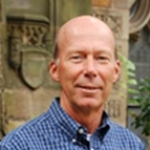 |
William MassaRetired Head of Collection Development, Manuscripts & ArchivesBill Massa’s primary prior work experience was at the Smithsonian Institution Archives in Washington, DC, from 1977 to 1988 when he moved to Yale. He works in Manuscripts and Archives, Sterling Memorial Library, most recently as Head of Collection Development (working with donors to acquire manuscript collections based on our collecting criteria). He also spends a fair amount of time with researchers, including undergraduates, who are in need of primary source materials for an academic assignment, a student publication, or a major writing project such as a dissertation or monograph. As a Trumbull College Fellow, he has been advising freshmen since the late 1990s. This has truly been the most fulfilling part of his life at Yale; he enjoys getting to know not only the advisees assigned to him, and through them, their friends. He also serves as a Personal Librarian to about 35 Trumbull freshmen and sophomores each year. His primary academic interest is Yale history, but he has gained a wide knowledge of primary sources at Yale and searching for related materials beyond Yale. Outside of Yale, he enjoys hiking, snowshoeing (bring on the snow and lots of it!), and collecting early (mid-18th to about the 1820s) American domestic lighting devices. BA, Elizabethtown College; MA, University of Wisconsin, Madison Email William Massa |
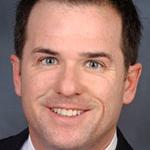 |
Thomas MasseMusicThomas Masse is dean of the Stetson University School of Music and professor of music. A clarinetist, he has performed as concerto soloist, orchestral musician and chamber musician throughout the United States, Canada, South America, Europe and Asia, and has taught at the University of Michigan, the University of Northern Colorado and Yale University. As a university administrator, he is known as a passionate advocate for the role of the arts in education and society. A graduate of Yale University, where he received the first artist diploma ever awarded a clarinetist, Masse earned his doctoral degree at the University of Michigan where he was a Regents Fellow. His primary teachers were David Shifrin and Fred Ormand. In addition, he holds an master of business administration degree from the University of Connecticut and a professional certificate in fundraising from New York University. Prior to his appointment at Stetson University, Masse was the associate provost for the arts at Yale University where he had academic, financial and strategic responsibility for the schools of architecture, art, divinity, drama and music, as well as the Institute for Sacred Music and the Norfolk Chamber Music Festival/Yale Summer School of Art and Music. For nearly ten years, Masse served in a variety of decanal positions at the Yale School of Music culminating in his appointment as deputy dean from 2005 to 2009. He began his academic career at the University of Northern Colorado in 1995 and became the youngest tenured faculty member at the university. |
Diyendo MassilaniGeneticsDiyendo started his scientific journey studying the chemical composition of local medicinal herbs in the laboratory of Pharmacology and Ethnology of the University of Health Sciences in Gabon (Central Africa) under the supervision of Pr. Blandine Akendengué. There, he obtained a Technical Degree of Medical Sciences in 2007. He then went to study in Sorbonne University in Paris (France) and received a Bachelor of Life Sciences in 2010 and a Master of Molecular and Cellular Biology - specialty Genetics in 2012. Fascinated by the idea of studying evolution using DNA from archaeological fossils, he joined the Epigenomics and Palaeogenomics lab of the Jacques Monod Institute in Paris. Under the supervision of Dr. Eva-Maria Geigl and Dr. Thierry Grange, he optimized methods for ancient DNA extraction and high throughput sequencing and developed hybridization-based enrichment approaches to capture the mitochondrial genome of any ancient specie of interest using RNA probes generated from DNA extracted from extant counterparts’ tissues. He applied his methods to study Bovids Evolution and Cattle Domestication and obtained a PhD in Genomics in 2016 from the Paris Cité University. In 2017, Diyendo joined the department of Evolutionary Genetics of the Max Planck Institute for Evolutionary Anthropology in Leipzig (Germany) to work on archaic and early modern human population history with Dr. Matthias Meyer and Pr. Svante Pääbo. In addition, he worked on methods to optimize the retrieval of ancient DNA from sediment and pioneered the technique of local sampling approach using undisturbed blocks of resin-impregnated sediment. Email Diyendo Massilani |
|
Howard MathwonDevelopmentEmail Howard Mathwon |
|
Andrew MayTruxton TrustEmail Andrew May |

